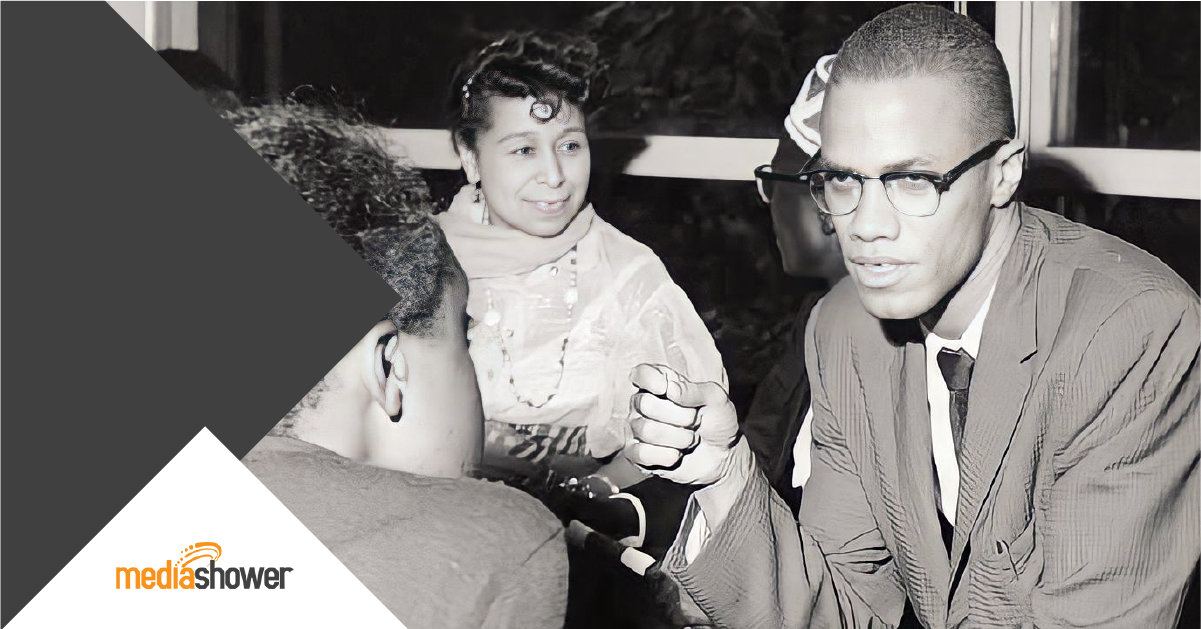
TLDR: Malcolm X was a prominent civil rights figure who fearlessly spoke about the reality of the Black condition and the necessary actions for change. His powerful speech resonated because it presented the truth and a clear call to action.
So What? Malcolm X utilized wit, bluntness, and clever figures of speech to convey the message that the Black community would bring about societal change, using various means.
In 1964, during the peak of the civil rights movement, Malcolm X delivered a speech that challenged fundamental American ideals and empowered the Black community to reclaim their power. One line from the speech has since been embraced by numerous civil rights groups: “We didn’t land on Plymouth Rock; the rock was landed on us.”
Using Wit and Irony
This line has endured because it exposes the long history of injustice towards Black people and marginalized communities that predates America’s independence and the writing of its Constitution. Initially, the line elicited laughter and applause because Malcolm X skillfully employed wit and irony to convey his message.
Benjamin Errit, in his Substack newsletter “Get Wit Quick,” highlighted Malcolm X’s skill at using wit and irony, noting that while Malcolm X was often witty, his intention was not necessarily to be funny. Laughter can defuse a situation, but Malcolm X aimed to ignite change. He had an important message to convey and never missed an opportunity to do so.
Dark humor and irony can effectively shed light on the truth of a situation, prompting acknowledgment and reflection. These techniques provoke thought and agreement, while their understated nature disarms resistance.
Telling It Like It Is
Malcolm X shared common goals with other civil rights leaders, including Martin Luther King, Jr., but he differed in his methods and message. Despite these differences, his message resonated with Black individuals who sought greater empowerment and were willing to express their grievances directly.
One of Malcolm X’s greatest strengths as a speaker was his directness in speaking the truth. Immediately after the famous Plymouth Rock line, he stated, “We were brought here against our will. We were not brought here to be made citizens. We were not brought here to enjoy the constitutional gifts that they speak so beautifully about today.”
He continued by emphasizing that the Black community had invested “310 years of slave labor” in America, and if the country was not willing to acknowledge and rectify that investment “right here, right now,” then perhaps returning to Africa, their place of origin, was a valid option.
Malcolm X’s bluntness set him apart from other civil rights leaders, but this directness was intentional. Diplomatic language was not sufficient to bring about the necessary changes sought by Malcolm X and his allies. Although bluntness might not have made him popular, it effectively highlighted the urgency for change and propelled it forward as quickly as possible.
Using Figures of Speech
Malcolm X’s famous Plymouth Rock line is an example of antimetabole, a figure of speech involving reverse-order repetition. Another well-known example of antimetabole is JFK’s line, “Ask not what your country can do for you. Ask what you can do for your country.”
This type of phraseology is highly effective in prompting audiences to perceive things differently. In the case of the Plymouth Rock line, Malcolm X aimed to make his listeners recognize that Black people had a distinct perspective on the country’s founding, diverging from the traditional notion that people came to America in search of freedom.
Although Malcolm X had only an 8th-grade education, he was exceptionally intelligent and adept at spontaneously using figures of speech. He acquired knowledge through extensive self-education, particularly during his time in prison after a troubled childhood. Additionally, he honed his debating skills while incarcerated.
“By Whatever Means Necessary”
Malcolm X firmly believed that change needed to happen by any means necessary. Although he and his group did not necessarily advocate violence, they considered it an option because they were determined to achieve change, whatever it took.
In the same speech that included the Plymouth Rock comment, Malcolm X stated, “It’s got to be the ballot or the bullet.” While Malcolm X never resorted to using violence to achieve his goals, the possibility was always present.
The radical idea that Black people should act in self-defense, even considering violence as a last resort, scared many people and may have undermined his message at the time. However, it also resonated with the anger felt by many individuals, lending urgency and power to his words as they exposed injustice.
Malcolm X viewed it as hypocritical to expect Black people to remain nonviolent while being subjected to daily terror from the Ku Klux Klan, with communities lynching them for perceived transgressions, such as interacting with a white woman.
In his later years, Malcolm X underwent a personal transformation, adopting a more inclusive and collaborative approach. He began emphasizing the importance of political engagement and encouraged Black individuals to exercise their right to vote as a means to effect change. Nonetheless, this speech remains a masterpiece in the fight for Civil Rights in America.
Looking for added power in your content? Media Shower can help with a master plan.
